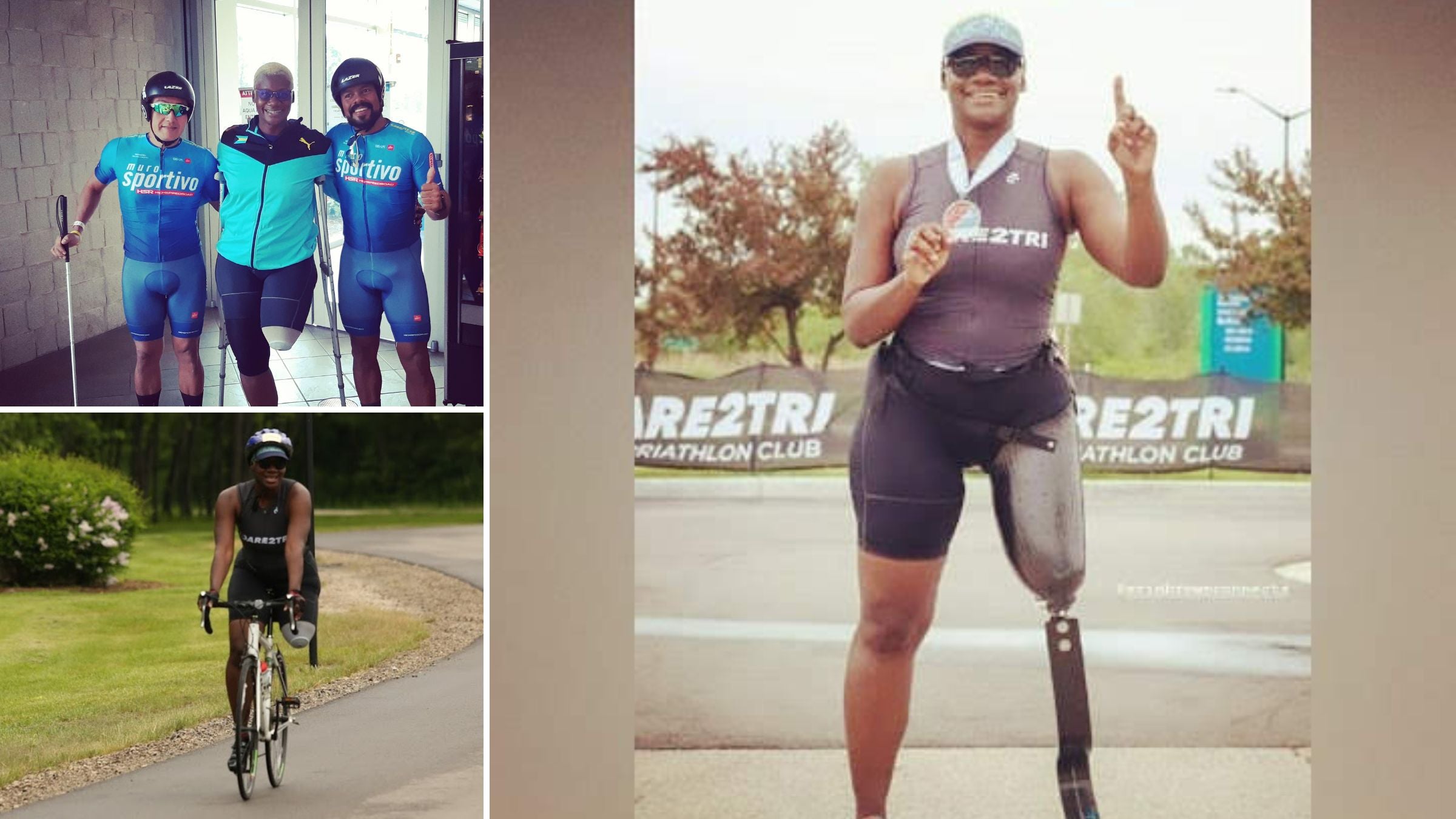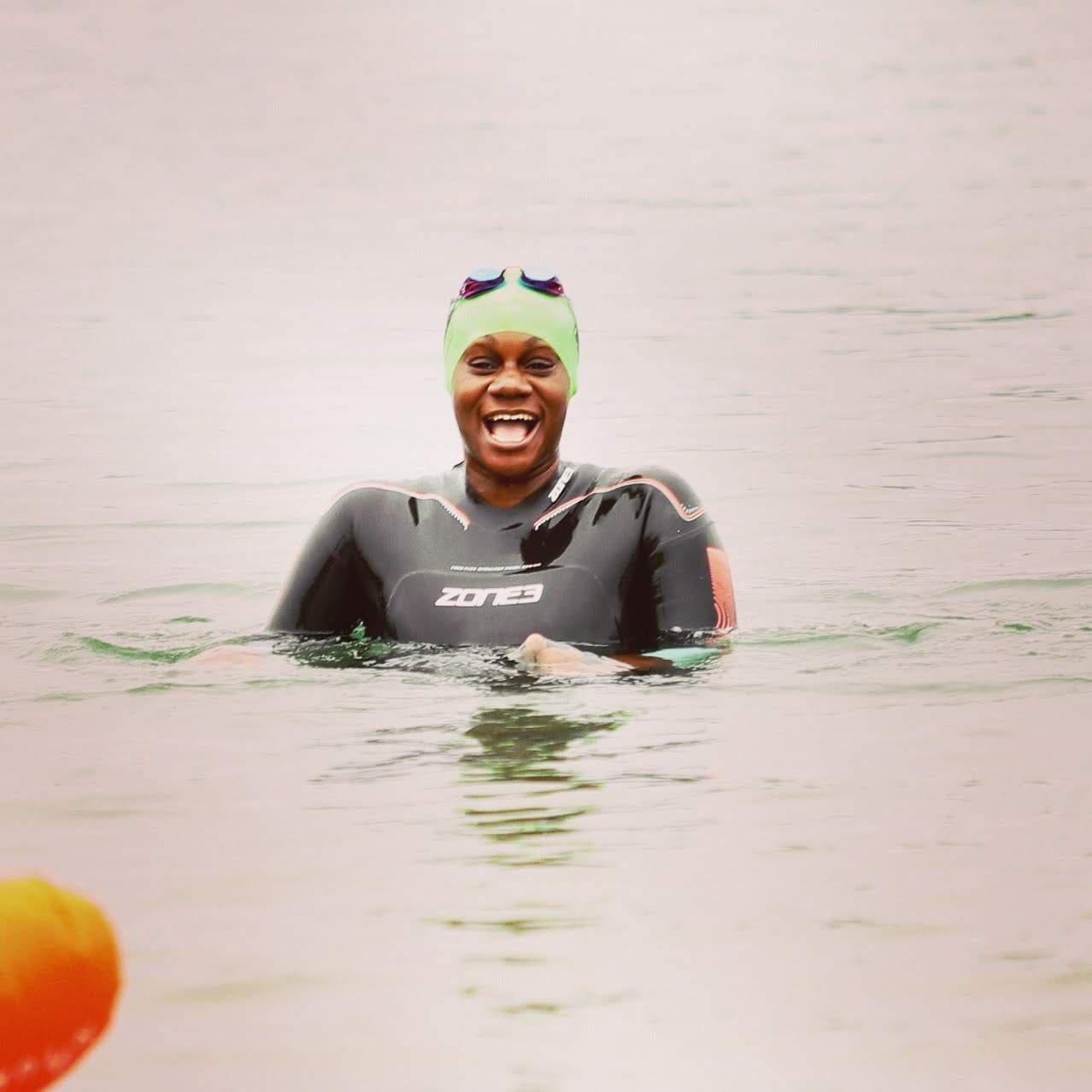Erin “Bionic” Brown is Blazing a Trail for Paratriathletes

(Photo: Courtesy of Erin Brown)
Erin Brown doesn’t just stand alone on the top of the podium. If she wins a race, she pulls her fellow competitors onto the top podium step to share in the victory. It is her steadfast belief that when one paratriathlete succeeds, all paratriathletes succeed, and Brown is on a mission to open as many avenues for success as possible for her fellow athletes.
For as long as she can remember, Brown has been active. Many of her memories of growing up in the Bahamas center around sports: winning her first trophy at nine years old during her school’s sports day, playing volleyball and swimming with her friends, competing in track and field in grade school and university. So when a battle with bone cancer in her 20s required an above-the-knee amputation, Brown struggled to adapt at first. This was compounded by the feeling that she was being discriminated against as someone with a disability. Without her active outlets and struggling with prejudice she felt, her physical and mental health plummeted.
That all changed when she began working out with G-Fit, an all-women’s boot camp that didn’t flinch when Brown showed up as the only person with a prosthetic leg. “There was no pushback, or someone telling me I shouldn’t or would not be able to do it,” she said. “G-Fit showed me I could do anything.”
For Brown, “anything” also meant that when her boot camp buddies signed up for the first-ever United World College Triathlon in 2011, she signed up, too. The new-found confidence she gained from G-Fit, coupled with the no-excuses attitude of the group, meant that Brown no longer listened to or cared about the people who thought an amputee athlete couldn’t swim, bike, or run.
“Triathlon gave me an opportunity to show up authentically, with all my fears and doubts, and shatter them through action,” Brown said. “I didn’t have to use a prosthetic to swim or cycle, and that was so freeing. Even now, it’s amazing just thinking about it.”

At that race, Brown was awarded the first-ever trophy in a physically challenged division at a triathlon in the Bahamas. Brown kept the momentum going, racing more and more events as the only paratriathlete in the field. Along the way, she defied stereotypes and served as an ambassador for people with disabilities in the Bahamas.
RELATED: What is Paratriathlon? Understanding Triathlon in the Paralympics
In 2020, Brown gained an even bigger platform for advocacy when she was the first to represent the Bahamas in the Paralympic Games qualifier. Her goal was to become the first Paralympian representing the Bahamas in almost 25 years. Though an injury prevented her from finishing, the experience changed the way she viewed herself and her nation. She didn’t want to be the only paratriathlete at Bahamian races anymore—she wanted to be surrounded by other paratriathletes, just like she was at the qualifying race.
“I got to show up and stretch myself and meet so many amazing paratriathletes,” she said. “I would not trade that experience for the world.”
When she got home, she got to work. “My aquamarine, black, and gold flag was now a part of the Paralympic Games history, and I wanted to be a part of the future,” Brown said. She worked to establish a Bahamas Paralympic Committee, set up training for coaches, physiotherapists, and trainers, and launch a full-scale campaign to recruit athletes with disabilities for endurance sports. In addition to increasing participation at cycling events and runs in the Bahamas, Brown has also helped change the way the media covers athletes with disabilities.
“Representation matters,” she said. “Our lived experiences with disabilities are valid and of value, and it is time we share it with the world and ourselves.”
Brown plans to carry this momentum forward by growing the capacity of the Bahamas Paralympic Committee to serve the needs of athletes with disabilities, as well as working with other national sporting federations to establish their own Paralympic arm. She’s also planning an attempt for the 2024 Paralympics in triathlon, working on a children’s book, and studying to be a disability rights attorney. It’s all part of her larger plan to make sure that no athlete ever feels excluded from sport or the culture at large.
“Our disabled voices are needed,” she said. “Even if you are the first or the only one, show up anyway. Access is your right, and opportunities are created, not determined by one set of rules.”